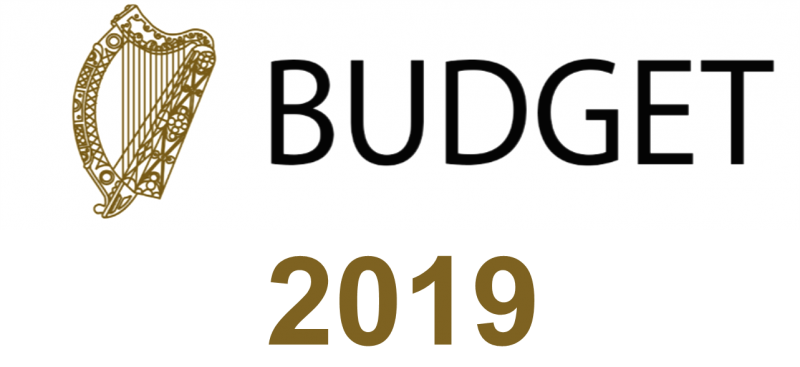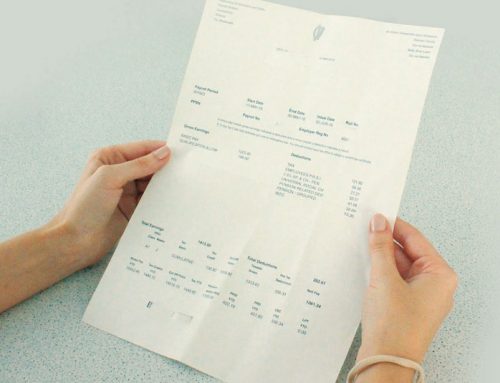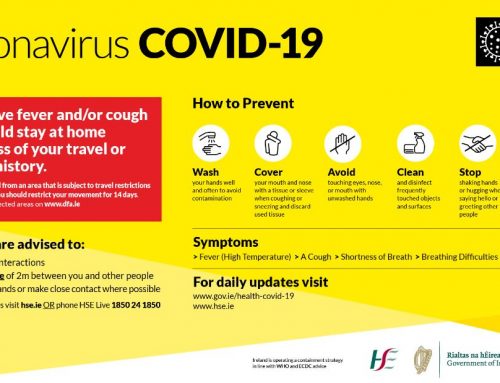Welcome to our Budget 2019 Summary
1. Pensions
The only pension related change announced in the Budget was an increase in the State Pension.
However, we will wait until the Finance Bill (expected to be published on Thursday 18 October 2018) to see what other changes, if any, happen.
State Pension (Contributory)
The maximum personal rate of the State Pension (Contributory) will increase by €5 to €248.30 per week.
Payment of the increase will take effect from March 2019.
The earliest age at which the State Pension (Contributory) is payable is currently age 66.
One of the recommendations included in “A Roadmap for Pensions Reform 2018-2023” published by the
Government earlier this year was to link State Pension increases to changes in the Customer Price Index
(CPI) and the average wage. This change is likely to be introduced next year.
Social Welfare Christmas Bonus and Specified Income Requirement
The Minister has confirmed that the Christmas bonus will be fully restored this year to eligible social welfare
recipients. The bonus will represent 100% of the weekly social welfare payment rate. For those in receipt of
the maximum personal rate of State Pension the bonus will equate to €243.30 in 2018.
Revenue confirmed earlier in the year that the Christmas bonus can be taken into account when determining
an individual’s “specified income” for ARF purposes.
This means that anyone in receipt of the maximum personal rate of State Pension (Contributory) will now
meet the requirements for minimum specified income (currently €12,700 per annum). As a result, if that
person holds an AMRF, then their AMRF should now convert to an ARF.
Financial Advisors should engage with their customers holding AMRFs who may be impacted by this.
Remember that the Living Alone Allowance also counts toward the specified income for ARF purposes.
2. Deposit Interest Retention Tax (DIRT)
The rate of DIRT will decrease by 2% to 35% with effect from 1 January 2019.
The last of the phased reductions in DIRT will take place on 1 January 2020 when DIRT rate will decrease to 33%.
3. Exit Tax
There was no mention in the Budget of any change to the current rate of exit tax on life assurance policies in
order to equalize it with the rate of DIRT. Current exit tax rate of 41% applies to any gains on life assurance
policies effected on or after 1 January 2001 (known as gross roll-up policies). This is very disappointing but
we await confirmation of whether or not there will be any change in the upcoming Finance Bill.
The exit tax rate for any gains in a life assurance policy owned by an Irish company is currently 25%.
4. Income Tax, PRSI and USC
Income Tax
There has been an increase to income tax bands. The single person standard rate band will increase by €750
from €34,550 to €35,300, and from €43,550 to €44,300 for married “one earner” couples.
There was no change to income tax rates.
The higher rate of income tax remains at 40% with the standard
rate of income tax unchanged at 20%.
However, there were further changes to the Earned Income Credit for the self-employed and certain
proprietary directors which increased by €200 from €1,150 to €1,350. This forms part of a 3 year move to
bring into line the treatment between the self-employed and the PAYE sector. The PAYE tax credit is currently
€1,650 and remains unchanged.
There was also an increase in the Home Carer Tax Credit from €1,200 to €1,500.
These changes are effective from 1 January 2019.
Universal Social Charge (USC)
The Government has announced a number of changes to the USC to take effect from 1 January 2019:
• 4.75% USC rate reduced to 4.50%
• A €502 increase to the ceiling for the 2% USC rate raising it from €19,372 to €19,874
Total income of €13,000 or less per annum is exempt from the USC.
The following USC rates will apply if total income is in excess of €13,000:
Rate Threshold
0.5% €0 to €12,012
2% €12,012 to €19,874
4.50% €19,874 to €70,044
8% Balance
The USC rate on self-employed income in excess of €100,000 remains at 11%.
Medical card holders and individuals aged 70 years and over whose aggregate income does not exceed
€60,000 pay a maximum USC rate of 2%.
These further reductions in the USC are the first steps towards the process of harmonising the USC and PRSI.
PRSI
The employer’s PRSI Class A rate will increase from its current 10.85% to 10.95% in 2019, for employees
earning more than €386 p.w. For lower earners, the employer’s PRSI Class A rate will increase from 8.6% to
8.7% in 2019.
5. Corporation Tax
There is no change to the Corporation Tax rate of 12.5% for trading income and 25% for non-trading income.
Page 3 of 4
6. Capital Acquisitions Tax (CAT)
CAT threshold that applies to children inheriting from their parents will increase by €10,000 to €320,000 with
effect from 10 October 2018. Group B and Group C Threshold remain unchanged and CAT rate remains at
33%.
CAT thresholds are as follows:
CAT Thresholds
Group A: €320,000
Applies where the beneficiary is a child (including adopted child, step-child and
certain foster children) or minor child of a deceased child of the disponer. Parents
also fall within this threshold where they take an inheritance of an absolute interest
from a child.
Group B: €32,500 Applies where the beneficiary is a brother, sister, niece, nephew or lineal ancestor
or lineal descendant of the disponer.
Group C: €16,250 Applies in all other cases.
There was no increase or decrease to the small gift exemption, which currently stands at €3,000 a year.
7. Capital Gains Tax (CGT)
The rate of CGT remains unchanged at 33%.
Legislation including the Finance and Social Welfare Bills are expected to be published
in the near future and we wait to see if they contain further changes not specifically
announced in the Budget.
Legislation including the Finance and Social Welfare Bills are expected to be published in the near future and we wait to see if they contain further changes not specifically announced in the Budget. This publication is intended only as a general guide and not as a detailed analysis. In the interests of brevity and clarity, detailed information may have been omitted which may be directly relevant to an individual’s or an organisation’s circumstances. The information is provided “as is” without warranties of any kind, express or implied, including accuracy, timeliness and completeness. It should not be used as a substitute for appropriate professional advice.
IPS Financial Advice Limited is regulated by the Central Bank of Ireland.





